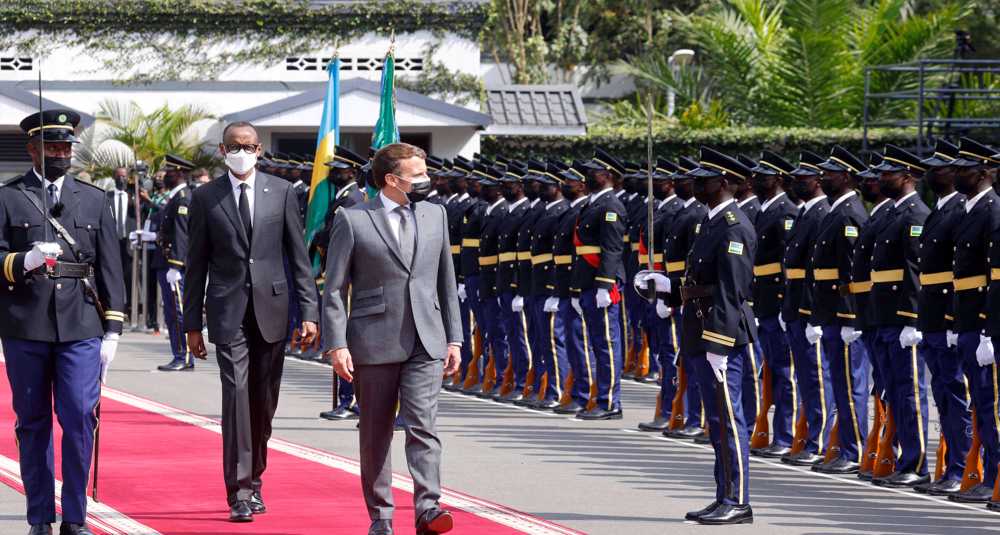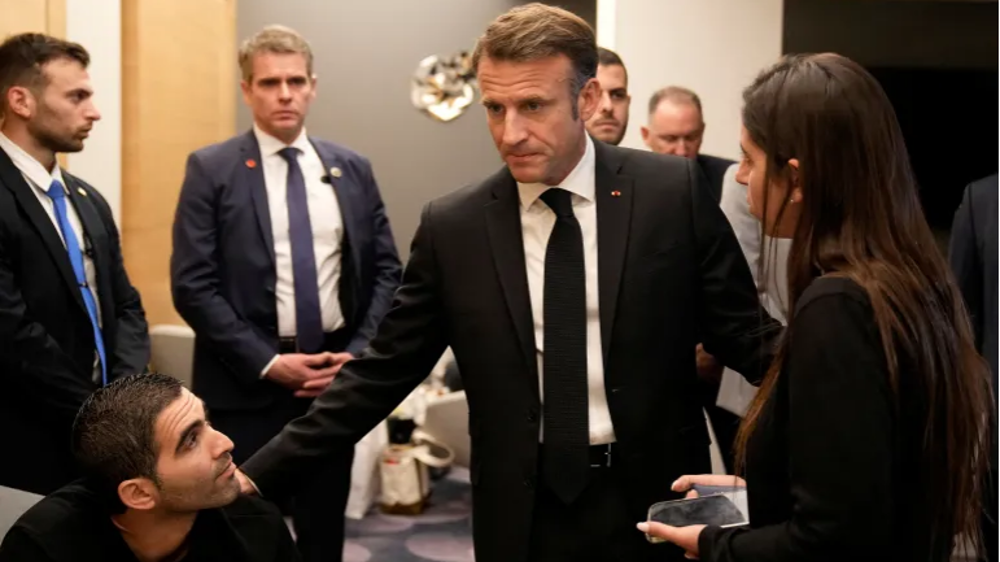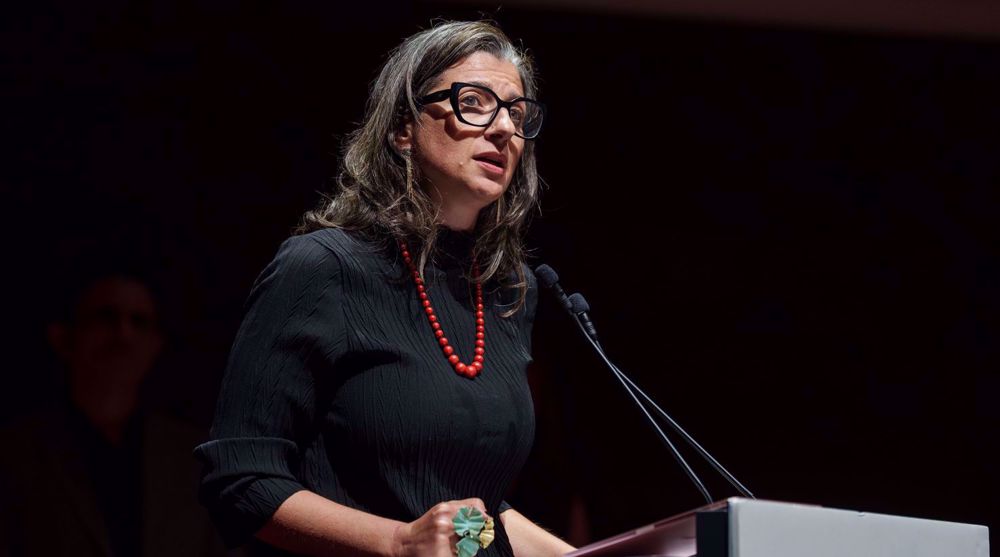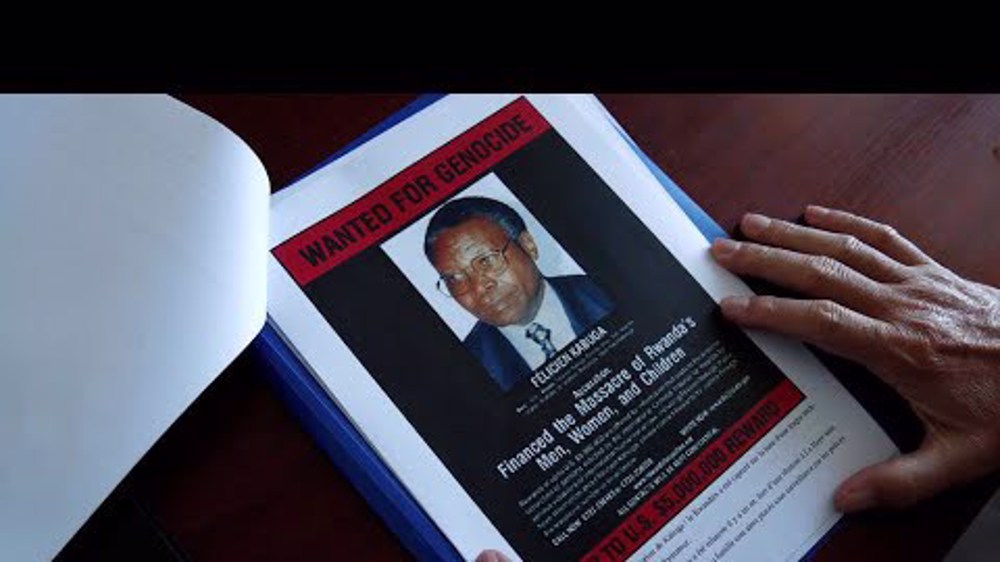Macron in Rwanda amid calls for apology over France's role in 1994 genocide
French President Emmanuel Macron has made a visit to Rwanda in an attempt to reset relations between the two countries after decades of political tensions over France’s complicity in the 1994 genocide, in which some 800,000 people from the ethnic Tutsi minority were massacred.
Macron arrived in the Rwandan capital Kigali in the early hours of Thursday morning and is due to give a speech later in the day at the Kigali Genocide Memorial, where some 250,000 victims of the 1994 mass killings are buried.
In a post on his Twitter account, the French president said as his flight took off for Kigali, he felt “a deep conviction: over the coming hours, together we will write a new chapter in our relations with Rwanda and Africa.”
French government spokesman Gabriel Attal also said, “The president's willingness to examine our history, our past, directly and transparently, is the best way to move forward.”
Many Rwandans say they are hoping for an official apology.
“It would be a very good thing if Emmanuel Macron apologizes,” said Freddy Mutanguha, director of the Aegis Trust NGO which runs the Kigali memorial.
“I wish he could ask forgiveness for what France did during 1994,” said a 28-year-old street vendor, who was two years old when her father and two brothers were killed.
Another Rwandan who lost her mother and other relatives in that time said, “We are waiting for one thing and that is an apology.”
“Many people say that he will not apologize but I don’t see how Macron comes to Rwanda and leaves without apologizing for France’s role,” he said.
However, Rwandan President Paul Kagame has played down the importance of the issue, saying any apology on the matter had to be spontaneous.
Macron’s visit-- seen as highly symbolic-- followed a report by a French inquiry panel that was released in March that said France bore “overwhelming responsibilities” over the genocide and acknowledged a “failure” on its part, but stopped short of accusing France of complicity in the genocide.
A subsequent report commissioned by Kigali brands France a “collaborator” of the extremist Hutu regime that orchestrated the mass murder.
The Muse report by US law firm Levy Firestone Muse said France knew genocide was looming in Rwanda but remained “unwavering in its support” of its Rwandan allies, even when the ethnic cleansing of the Tutsi minority was clear.
Kagame, who has previously accused France of being complicit in the genocide said last week that the French-government commissioned inquiry report “meant a lot” to Rwandans, adding that Rwandans could “maybe not forget, but forgive,” France for its role.
The genocide that took place between April and July of 1994 was triggered by the killing of Rwanda's Hutu president Juvenal Habyarimana, a close ally of Paris, whose plane was shot down over Kigali.
France has long been accused of not doing enough to prevent the mass slaughter, which has led to strained ties between the two countries to this day.
The criminal investigation into complicity in genocide had been opened by prosecutors in December 2005 after complaints filed by survivors and human rights groups.
Back in 2010, former French president Nicolas Sarkozy attempted to break the ice by admitting to “serious mistakes” and a “form of blindness” on the part of the French during the genocide.
His remarks fell short of expectations in Rwanda, and bilateral relations continued to fester.
However, ties have warmed under Macron, who has taken several steps to heal the wounds, including forming a commission into the role of France in the genocide.
Macron is the first French leader since 2010 to visit the East African nation.
He is then scheduled to travel to South Africa, where he will meet President Cyril Ramaphosa to discuss COVID-19 and regional crises, including one in Mozambique.
The French president is expected to use the visit to name an ambassador to Rwanda, filling a post left vacant since 2015.
Trump plans to establish 'massive' military base in southern Gaza: Report
NYT questions Trump’s justification for threatening war on Iran
VIDEO | Press TV's news headlines
Araghchi stresses efforts to draft negotiating text between Iran and US
Over 150 ex-diplomats slam French FM's 'disinformation’ about UN’s Albanese
Alawite women abducted and raped, others sold by Jolani's men: Report
Iran, China, Russia hold trilateral talks on Geneva nuclear negotiations
VIDEO | Protests and skepticism greet Trump’s 'Board of Peace'















 This makes it easy to access the Press TV website
This makes it easy to access the Press TV website